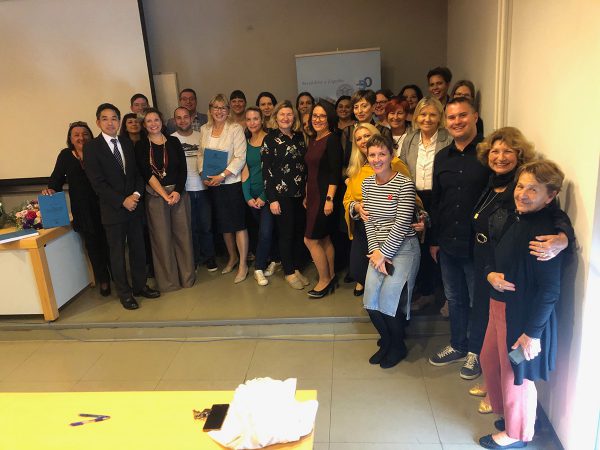Emira Bečić, Ministry of Science, Education and Sports
Croatia recognizes the importance and opportunities that today provide nanotechnology, biotechnology and MEMS (Micro Electro-Mechanical-System) technology. The corresponding applied research result in breakthroughs in the design and production of a large number of complex products, and microsystems. High level of knowledge needed to develop and produce such systems, provides space for small and medium-sized countries to compete successfully with much larger economies on the world market. Croatia has a critical mass of human resources, experience and potentials strong enough to make a big step forward by building the appropriate centers of competitiveness. Potentially interesting products can be, for example, microsystems that has sensors for physical / chemical / bio effects for inputs and a reliable analysis of outputs showing the relevant data. Areas of application for such devices are huge, just to name the most interesting (which primarily require high reliability), such as biomedicine, diverse eco-systems, energy sustainability, production and inspection of food, transport and communication systems, security and military systems, and so on. In fact, this type of infrastructure is expensive for a small or medium-sized company to build and maintain on their own. This is an impossible mission without the Government support. However, if you create and implement effective business plan, supported by international cooperation and wise use of available European funds, this would be possible. This infrastructure provides the ability to turn innovative ideas into specialized and competitive products. A complete chain of values can be represented, from technology and product development to pilot production, including feasibility studies, simulations and critical parameters of a process, design, development of individual processes and prototypes, to medium volume production. Even individuals (physical persons) can use these services, not to mention the small companies which are the driving forces in each national economy. Eventually I would like to emphasize the long Croatian experience and expertise in areas that are the basis for building the infrastructure described above, especially in research and manufacture of silicon semiconductors, then in mechanical engineering and biotechnology. Odd thing is that the second European semiconductor factories for processing silicon was founded in Zagreb in the late 1960s (the first was the SGS in Italy), supported by strong research and educational activities at the University of Zagreb and research institutes such as the Ruđer Bošković Institute, Institute of Physics, University of Zagreb.
[BACK]

